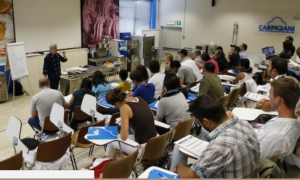If you’re looking for a way to live abroad and enjoy helping people, keep reading: ELA’s Trinity certTESOL courses could be for you.
TEFL can take you anywhere in the world but you have to be up for the challenge.
Moving abroad into the unknown is sure to get the heart pumping. Most expats vividly remember their first few days abroad and it takes some time for that initial buzz to wear off, if it ever does. As you rise to the challenges of finding our way around your new city, shopping in strange surroundings or figuring out how to get wifi, you will feel a sense of accomplishment out of all proportion to such mundane tasks.
Added to the undeniable thrill of living abroad is the sense of satisfaction that you are there to contribute to local skills and education. Whether it’s in public schools, language academies, companies or even private homes
companies or even private homes you have a unique chance to get to know, understand and help local people. Along the way you will meet characters you would never otherwise have been exposed to, some of these will become good friends.
you have a unique chance to get to know, understand and help local people. Along the way you will meet characters you would never otherwise have been exposed to, some of these will become good friends.
If these benefits appeal to you then perhaps it’s time to consider if you’re ready for, or content with, your 9-5 office world. Flexibility is certainly a key attribute TEFL teachers must have in bucket loads. Always remember: it’s the students’ lesson not the teachers’! You don’t have to be the expert but you do have to exploit different parts of your personalities with different groups.
Flexibility doesn’t just extend to personalities or lesson types. The green TEFLer must also be culturally adaptable. If you expect a mini super-market open from 1000-2200 on every Italian street corner, stay in Blighty. If you have to have your tapas before 9, stay home. ‘Normal’ and ‘right’ are truly subjective matters.
Embrace the strangeness of your new home and learn more about your own as you go!



